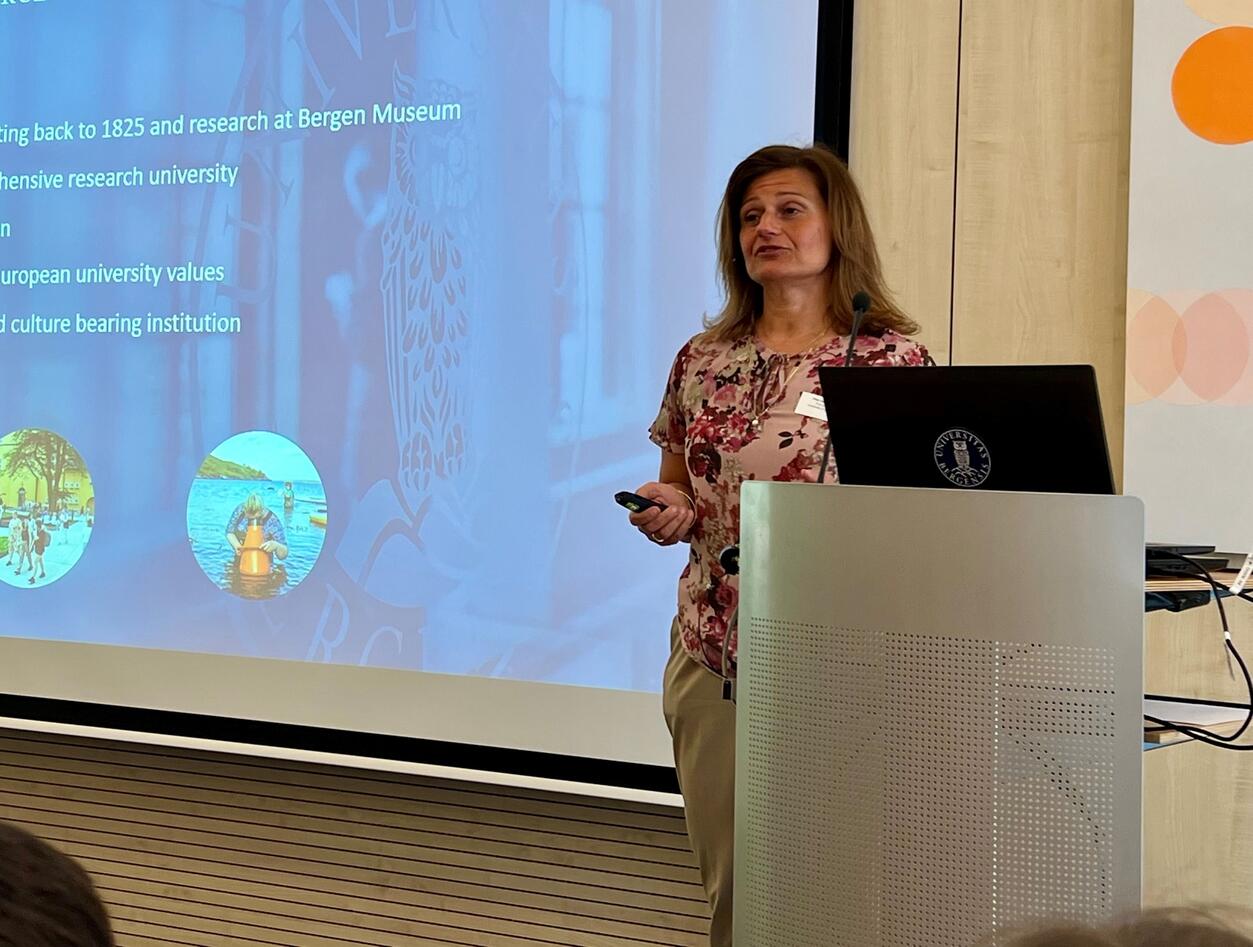University of Bergen Hosts Discussion on Digital Skills in the EU
Digital skills are crucial in society, and the need to provide these for all is becoming increasingly urgent. UiB and partners discussed solutions and possibilities at an event in Brussels recently.

Main content
The University of Bergen (UiB) in cooperation with the business association Abelia, recently convened stakeholders from academia, business, and EU institutions for a dialogue on the pressing need for digital skills. Recognizing digitalization as the foremost driver of economic growth and inclusion, there is a significant imperative to elevate the level of digital skills within society.
The European Union has set an ambitious goal: by 2030, 80% of all citizens in member states should possess basic digital competence. However, there is still a long way to go to achieve this target.
"It was fascinating to engage in discussions on this challenge with other stakeholders. At UiB, we have developed our own concept DIGI: a comprehensive package of small courses providing digital understanding, knowledge, and skills, offered to students, staff, and as continued education. This success attracted a lot of attention and is a result of interdisciplinary collaboration at UiB. Exploring how the EU can support various initiatives through policy and programs was particularly insightful," remarked Pinar Heggernes, Deputy rector at the University of Bergen. Still, more fundamental changes are needed in all study programmes to reflect the digital transition in disciplines and professions, and cooperation across countries and sectors may contribute to achieve this.
The event featured presentations from and discussions with co-host Abelia, DIGITALEUROPE, Trinity College Dublin, European University Association, the Directorate-General for Education and Culture in the European Commission, alongside the University of Bergen.
These presentations set the stage for a panel discussion, with Nils-Ola Widme, Director of Policy at Abelia, emphasizing the link between technological adoption and workforce efficiency.
“In a more knowledge-based economy, with a declining workforce, only the most productive industries will succeed. Companies must adapt to compete for talent, and they must become forward-thinking employers”, Widme says.
Summarizing the key takeaways from the event, Heggernes highlighted three points:
- Urgency: The need for skills to facilitate a successful digital transition presents both a shared challenge and opportunity for Europe. There's a growing sense of urgency among stakeholders in higher education and the labor market to equip the workforce with the necessary understanding, knowledge, and skills.
- Specific Focus on Skills: A targeted approach is required to enhance digital understanding, skills, and competencies across all disciplines, professions, and sectors. This goes beyond digital technologies for teaching and learning, necessitating a distinct strategy.
- Joint Action for Joint Challenges: Addressing skill gaps in Europe demands collaborative efforts to cater to the needs of IT and technology experts, as well as other disciplines like humanities, social sciences, law, and medicine. Open discussions and European cooperation at policy and project levels are essential, requiring stronger and more focused funding instruments from the EU, including within Erasmus+ and the Digital Europe programs.
The University of Bergen remains committed to advancing digital competence and contributing to Europe’s digital future.



